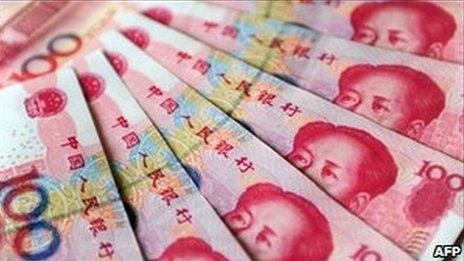China arrests ex-security chief Zhou Yongkang
- Published
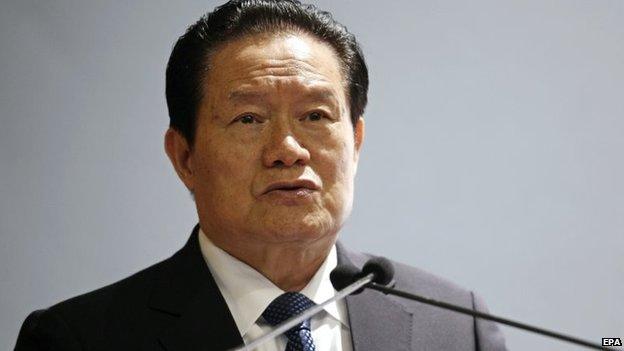
Mr Zhou was head of China's vast internal security apparatus until 2012
Ex-security chief Zhou Yongkang, the most senior Chinese official to be investigated for corruption, has been arrested and expelled from the Communist Party, state media report.
The Supreme People's Procuratorate, China's top prosecuting body, said it had opened a formal probe against him.
Before he retired two years ago, Mr Zhou was the head of China's vast internal security apparatus.
Many of his former associates and relatives also face corruption probes.
Since coming to power, Chinese President Xi Jinping has launched a high-profile campaign to weed out corruption among party and government officials.
Mr Zhou was accused of several crimes, including "serious violations of party discipline", "accepting large sums of bribes", "disclosing party and state secrets" and "committing adultery with several women" as part of corrupt transactions, Xinhua news agency reported (in Chinese), external.
Mr Zhou's arrest was announced in a statement by the Supreme People's Procuratorate, released late on Friday night.
'Most feared'
Mr Zhou, who is in his 70s, has not been seen in public for more than a year.
Analysts say the investigation against Mr Zhou allows Xi Jinping to consolidate his power base, remove people opposed to his reforms, and improve the image of the Communist Party.
Mr Zhou was previously also a member of China's top decision-making body, the Politburo Standing Committee.

Analysis: Zhuang Chen, BBC Chinese
Zhou Yongkang was allegedly the most feared and powerful senior official before he retired two years ago from the pinnacle of China's decision-making body. He is also the biggest "tiger" - the highest ranking official - caged by Xi Jinping in his anti-corruption drive.
Dubbed "Master Kang", Mr Zhou put many of his followers in powerful positions in the oil and security sectors during his heyday in office. Many of his loyalists have since been either sentenced or indicted on corruption charges.
It has taken over a year to investigate his case, which suggests the authorities are mindful of its sensitivity. Some suspect the party would rather deal with his case in secrecy, given how much Mr Zhou knows.
The fact that he is to be investigated by state prosecutors means the authorities have gathered sufficient evidence.
It also shows an ever-more confident Xi Jinping making Mr Zhou a case in point to further consolidate his power.
The suspense now is over whether Mr Zhou will be charged and tried in public, in the fashion of his disgraced former ally Bo Xilai.

A Chinese minister has previously said that the investigation against Mr Zhou would take a long time to complete.
Mr Zhou had enjoyed a close working relationship with former Chongqing party chief Bo Xilai, who was sentenced to life imprisonment last year on bribery charges.
Bo's wife Gu Kailai was given a suspended death sentence in 2012 for the murder of British businessman Neil Heywood.
Bo's downfall was seen as the biggest political shake-up to hit China's ruling elite in decades, and revealed divisions at the top of the party over how the scandal should be handled.
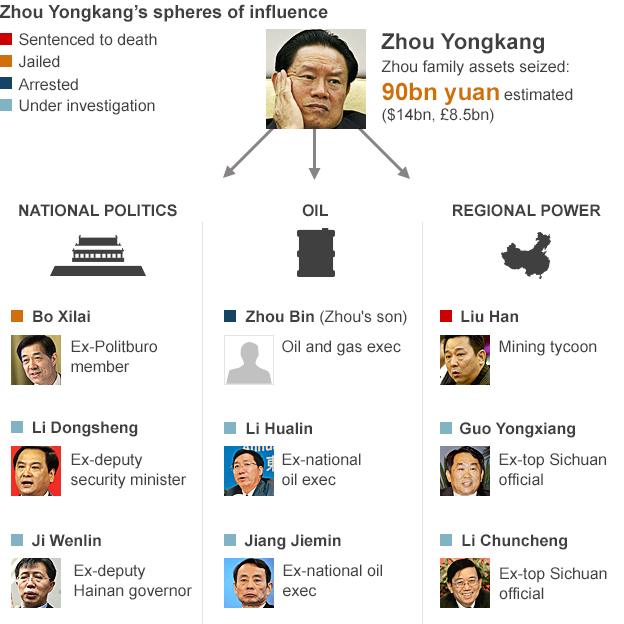
'Zero-tolerance'
Mr Zhou's arrest was welcomed by many social media users on Sina Weibo, a Twitter-like platform in China.
"We have zero-tolerance against corruption!" one user wrote.
"No position is off-limits when it comes to removing malignant tumours, winning the applause and cheers of the people," another user, Zhang Jinyang, wrote.
Many users highlighted the allegations that Mr Zhou had leaked state secrets and committed adultery.
However, some comments about the charges against Mr Zhou appear to have been censored.
Searching for "Zhou Yongkang" on Sina Weibo brings up a number of microblog posts, but also the following message: "Under the relevant laws, regulations and policies, some of the search results cannot be displayed."
As for comment from state media, China Daily says: "Those hoping that the [anti-graft] campaign was a passing phase should start to think seriously about their fate."
For the Chinese Communist Party's newspaper, People's Daily, the investigation shows that "everyone is equal before the law and nothing is off-limits in fighting corruption."

Timeline: Zhou Yongkang
1942: Born in Wu Xi city in eastern Jiangsu province
1964: Joins the Communist Party and spends the next 32 years in the oil sector
1998: Becomes party secretary of China National Petroleum Corporation
1999: Appointed party secretary of Sichuan
2002: Appointed member of the Politburo at the 16th Party Congress; becomes minister of public security later that year
2007: Further promoted to member of the Standing Committee of the Politburo - China's highest state organ
2012: His lieutenants begin to get sacked and investigated; he appears with Bo Xilai at Chinese National People's Congress session
December 2013: His son Zhou Bin is arrested on corruption charges
December 2014: Arrested, expelled from party

- Published6 December 2014
- Published12 October 2015
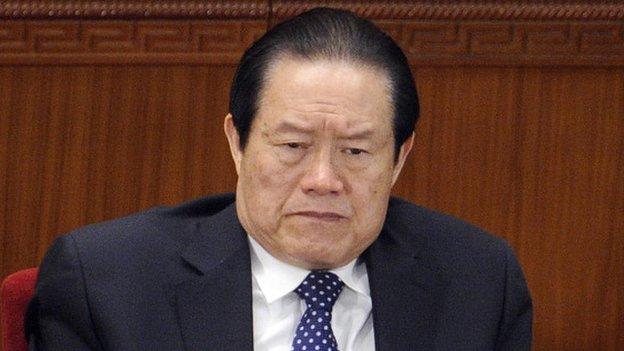
- Published5 November 2014

- Published12 August 2014
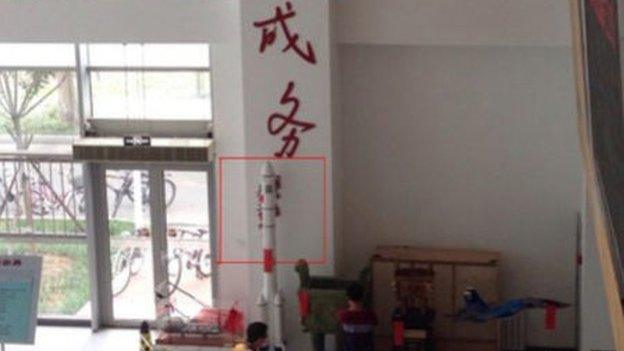
- Published6 May 2014
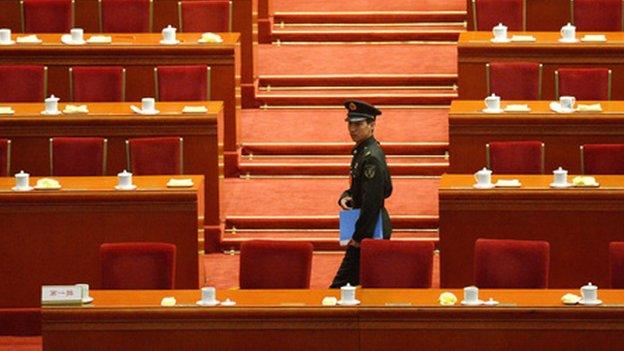
- Published3 April 2014
